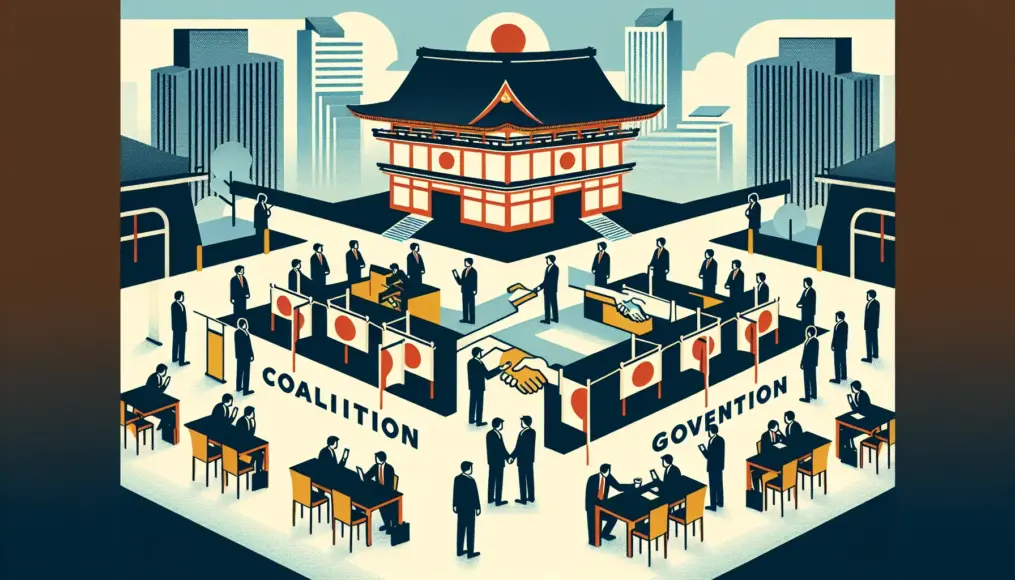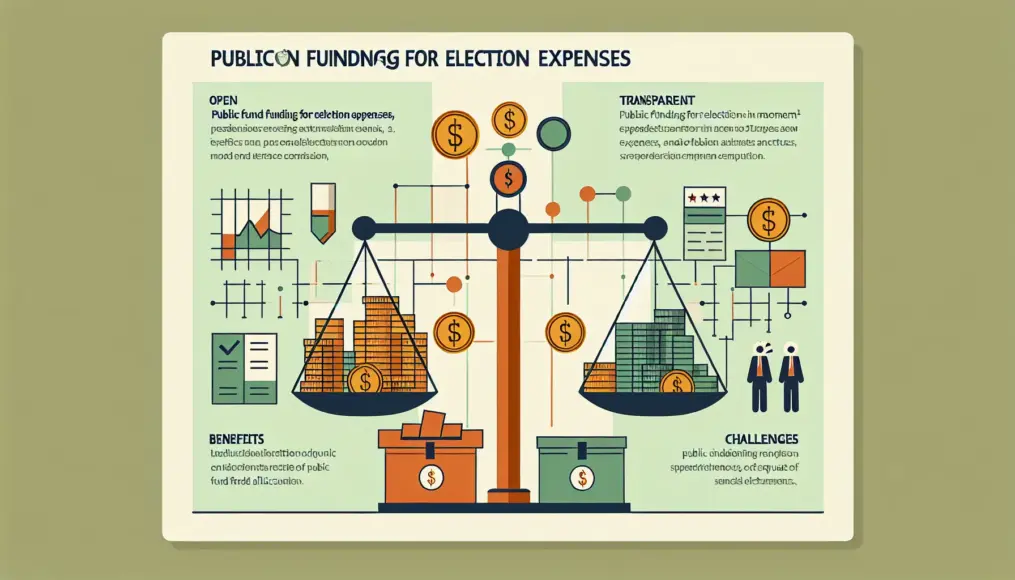When considering the coalition government of the Democratic Party for the People, it’s fascinating to see the political dynamics and historical context that shape it. This coalition represents more than just a political alliance; it has significant implications for the lives and futures of citizens. It raises questions about how this coalition was formed and the direction it may take moving forward.
In this article, we will delve into the historical background of the Democratic Party for the People’s coalition government, explore its advantages and disadvantages, and examine its role in contemporary politics. Understanding these political shifts will enable us to better recognize how policies might affect our lives.
Let’s take a closer look at how the coalition government of the Democratic Party for the People has been shaped and its impact on society.
- A detailed explanation of the historical background of the Democratic Party for the People’s coalition
- An overview of the pros and cons of the coalition government
- The role of coalitions in modern politics
The Historical Context of the Constitutional Democratic Party Coalition
When considering the coalition government formed by the Constitutional Democratic Party (CDP), it’s essential to understand the trajectory of post-war Japanese politics. Japan has undergone significant political transformations since the end of World War II, leading to its current political landscape. Throughout this evolution, the coalition government model emerged as a vital mechanism for reflecting the diverse opinions of the electorate. Gaining insight into this historical context is crucial for comprehending the future political climate.
It’s also important to examine how the CDP coalition was established, focusing on the specific processes involved. By looking at the cooperation and conflicts between political parties, as well as the adjustments made to policies, we can better understand how the coalition government came to fruition.
The Impact of Post-War Politics
In post-war Japan, the political system underwent drastic changes. In the immediate aftermath of the war, various political parties emerged, all aiming to establish democracy. The CDP began to carve out its space as one of the significant political options during this period. Within this context, coalition governments began to play an increasingly important role.
The CDP actively sought collaboration with other parties to implement its policies. This approach enabled it to incorporate a range of perspectives and ultimately create policies that garnered broader public support.
- Changes in the post-war political system influenced the formation of coalitions
- The CDP realized policies through collaboration with other parties
- The growing significance of coalition governments
The Process of Coalition Formation
The coalition government led by the CDP is not merely a political agreement; it is shaped by various historical backgrounds and social factors. Notably, changes in economic conditions and social circumstances have been key contributors to the formation of the coalition. By considering these factors, we can gain a clearer understanding of how the CDP coalition has been structured.
Moreover, the interests and electoral strategies of each party also play a role in coalition formation, adding layers of complexity to the conditions and arrangements necessary for collaboration. However, through this intricate process, the CDP has been able to pursue stable governance.
Understanding the CDP coalition also requires reflecting on how past changes in government impacted the current political landscape. For those interested in the shifts in policies brought about by the Democratic Party’s transition to power, I encourage you to check out this article on “The Impact of the Democratic Party’s Transition and the Subsequent Changes in Japanese Politics.”
- Economic and social conditions influence coalition formation
- The interests of various parties add complexity to coalitions
- The CDP’s commitment to stable governance
The Pros and Cons of Coalition Governments
The coalition government formed by the Democratic Party for the People comes with a variety of advantages and disadvantages. One of the biggest benefits of a coalition is its ability to integrate diverse opinions and perspectives, leading to the implementation of a broader range of policies. However, this complexity can also slow down decision-making processes. In this section, we’ll explore the specific benefits and challenges associated with coalition governments.
When different parties collaborate in governance, it can create advantages for the public. Nonetheless, the need for coordination often brings about friction due to differing opinions, which can serve as a downside. Understanding the unique characteristics of coalitions is essential for evaluating the future of political landscapes.
Advantages of Policy Coordination
One of the key benefits of a coalition government is the capacity for policy coordination achieved through the cooperation of different parties. This collaboration makes it easier to develop policies that reflect a variety of viewpoints. To meet the needs of the public, discussions that encompass diverse perspectives are crucial. Thus, coalition governments are expected to yield beneficial outcomes for citizens.
Additionally, coalitions can help eliminate biases that may arise from a single party’s agenda, fostering the formation of more balanced policies. This can lead to increased public trust and contribute to stable governance.
- Easier implementation of policies reflecting diverse opinions
- Importance of discussions to meet public needs
- Potential for balanced policy formation
Challenges in Governance
On the flip side, coalition governments face operational challenges. With multiple parties involved, the need for opinion adjustments can sometimes delay decision-making. In such scenarios, the inability to make timely judgments can hinder proper responses when swift action is required.
Moreover, the complex interests among coalition partners can serve as obstacles to effective governance. A decline in support for specific policies may destabilize the overall direction of the coalition government. Overcoming these challenges necessitates meticulous communication and collaboration.
Running a coalition government requires careful alignment of various opinions, and for more insights on the implications of policy decisions, check out our article on “Deciphering the LDP’s Constitutional Draft: Its Background and Impact.” It provides a deeper look into how the draft proposed by the Liberal Democratic Party influences Japan’s political scene, which is crucial for understanding the pros and cons of coalition governance.
- Potential delays in opinion adjustment
- Complexity of interests can hinder governance
- Risk of destabilizing policy direction
The Role of Coalitions in Modern Politics
In today’s political landscape, coalition governments play a crucial role. Particularly, the coalition formed by the Constitutional Democratic Party has become a means to incorporate diverse opinions and deliver tangible benefits to the public. By establishing coalition governments, a greater variety of policies emerges, making it easier to reflect the voices of the people in political decisions. In this section, we’ll explore the impacts of coalitions and their relationships with other political parties.
Coalition governments serve as a powerful strategy for addressing significant challenges that single-party administrations may struggle with. When parties with various perspectives and approaches collaborate, it is expected that more comprehensive policies will emerge. This collaboration increases the likelihood of effectively responding to the complex social issues of our time.
The Impact of Coalitions
The effects of coalition governments are multifaceted. Firstly, cooperation among different parties broadens the range of policies available. This means that the voices of specific interest groups and regions are more likely to be heard. Additionally, coalitions can garner widespread support, which contributes to stable governance.
Moreover, coalition governments provide opportunities for new ideas and policies to take shape. By bringing together parties with differing viewpoints, previously unconsidered solutions may be discovered. Through this process, politics can better meet the expectations of the public.
- A broader range of policies reflects diverse opinions
- Gaining widespread support enables stable governance
- Opportunities for new ideas and policies are created
Relationships with Other Parties
Coalition governments also significantly influence relationships with other political parties. Forming coalitions fosters cooperation among parties, but it can also lead to rivalry and competition. These dynamics play an important role in the adjustment and implementation of policies.
Moreover, coalition governments are required to form broader political agreements through cooperation with other parties. This process contributes to creating a more transparent political environment for the public. By understanding how coalition governments interact with other parties, we can gain a deeper insight into the political landscape.
- Cooperation among parties is fostered
- Potential for competition and conflict in policy adjustments
- A means to achieve transparency in politics for the public
Looking Ahead: The Future of Coalition Government in Japan
The coalition government led by the Constitutional Democratic Party of Japan is expected to play a significant role in shaping the future of Japanese politics. Understanding the upcoming political trends is crucial for the citizens, as these changes will directly influence policies that affect our daily lives. In this section, we will explore the potential political landscape and the dynamics of coalition governance going forward.
Exploring how the coalition government will evolve and how its relationships with other parties will change is essential for anticipating the future of politics. This understanding will help clarify how the Constitutional Democratic Party can maintain and even strengthen its coalition.
Future Political Trends
Future political trends will greatly impact the coalition government led by the Constitutional Democratic Party. It is especially important for the government to be attuned to public opinion and shifts in societal conditions. Political currents can change rapidly, requiring a flexible approach to respond effectively. This adaptability will enable the coalition to implement policies that meet the expectations of the public.
Additionally, changes in international relations and the economic landscape will also influence political trends. To realize policies that citizens demand, such as economic revitalization and enhanced social welfare, the coalition government must develop appropriate strategies. This will help maintain a stable governance framework.
- The need to be sensitive to public opinion and societal changes
- Implementing policies that meet public expectations with a flexible approach
- Developing strategies that consider international relations and economic conditions
The Potential for Coalition Governance
The viability of coalition government involves a multitude of factors. Strengthening cooperative relations with other political parties is key to solidifying the coalition. To gain public support, it is necessary to foster transparent governance and build trust. This will enhance the sustainability of the coalition.
Moreover, how the coalition government responds to emerging challenges is critical. Particularly, addressing pressing issues like environmental concerns and the aging population will significantly influence the future outlook. The ability of the coalition to propose viable solutions to these societal challenges will determine its effectiveness moving forward.
- Strengthening cooperation with other parties to ensure coalition sustainability
- Building trust through transparent governance is essential
- Effectively addressing challenges such as environmental issues and an aging population is crucial
Conclusion
The Democratic Party for the People plays a crucial role in modern Japanese politics by incorporating diverse opinions within its coalition government. This collaboration broadens the range of policies and allows for a flexible response to the needs of the populace. However, it also presents some operational challenges. Notably, the time required for consensus-building and the need to nurture relationships with other parties can impact the sustainability of the coalition.
Looking ahead, for the Democratic Party for the People to maintain and strengthen its coalition, it must prioritize transparency in governance and remain attuned to societal changes. Additionally, how the coalition addresses significant issues such as environmental concerns and the challenges of an aging population will be closely watched. In this way, the coalition government holds the potential to guide Japanese politics in a more positive direction.
- The coalition led by the Democratic Party for the People is a vital means of broadening policy options.
- Challenges in governance include consensus-building and fostering relationships with other parties.
- Future prospects demand transparency and sensitivity to social changes.
Let’s continue to keep an eye on the Democratic Party for the People’s developments and observe the shifts in politics. We’d love to hear your thoughts and feedback in the comments!



Comment